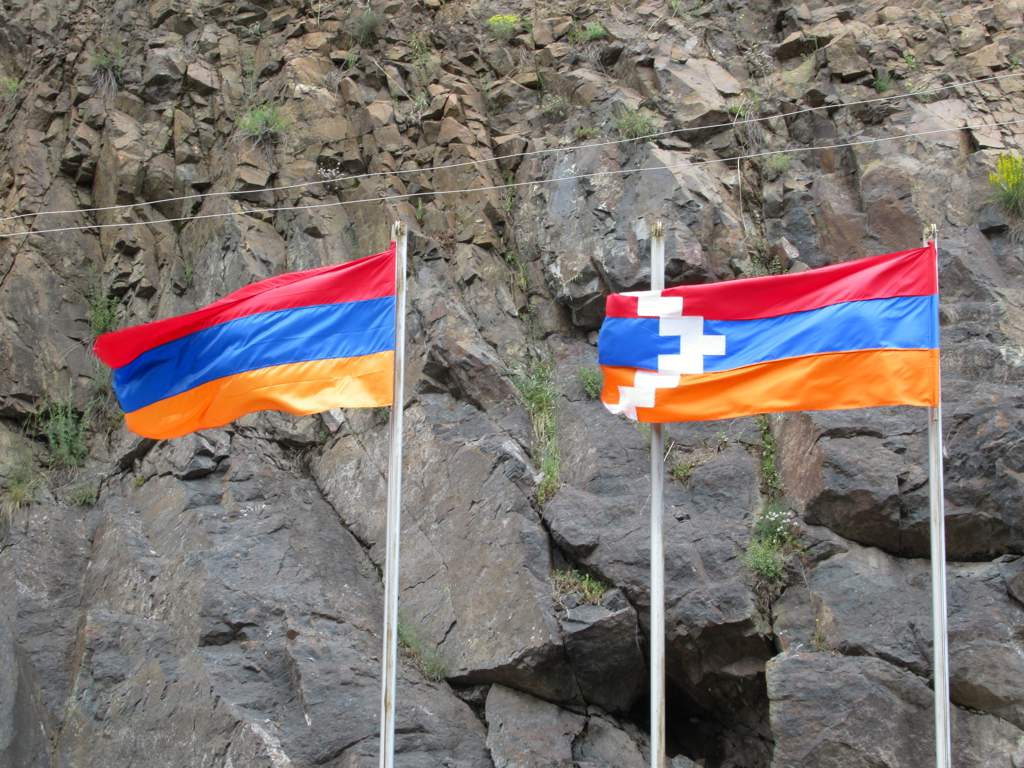Nagorno-Karabakh is a mountainous, landlocked region in the South Caucasus. According to international law, it is technically part of Azerbaijan, but ethnic Armenians make up the vast majority of the population. About 150,000 people reject Azerbaijani rule and have been running their own affairs with support from Armenia. This has caused the region to become a contentious flashpoint between the two South Caucasian countries; both blaming each other for initiating the conflict. Tension have been relatively quiet since the two counties declared a ceasefire following a war over the region in 1988-94. However, they never reached a settlement over the dispute. It is becoming clear that the repercussions of this war will be larger than the casualty count as a new regional framework is developing to deal with the conflict. But how much can the international community help this continuous conflict?
The main reason for international actors’ concern about a potential war in this region is its geographical positioning. Nagorno-Karabakh serves as a corridor for oil and gas pipelines. It is also strategically very important, with Armenia and Azerbaijan bordering with the likes of Turkey, Iran and Russia. But despite its growth in international importance, countries such as the US have been less engaged in the issue and not shown any support for conflict resolution.
“Cynically one might say that if Azerbaijan has launched a military offensive, one of the reasons it may have done so is because the US is so disengaged at the moment.”
Thomas de Waal, senior fellow specialising in Eastern Europe and the Caucasus region.
Since the early 1990s, negotiations for resolving the Nagorno-Karabakh conflict have been deeply entrenched in a Euro-Atlantic framework, that also includes Turkey and Russia, known as the OSCE Minsk Process. However, the Minsk Group has run its course without achieving any notable results. For many, especially on the part of Azerbaijan, there is an increasing perception that the Minsk Group is unable or unwilling to provide an effective resolution to the conflict.
Arguably, both Russia and Turkey have taken advantage of several developments in the past couple of years to increase their cooperation, especially in the South Caucasus. Thus, a lack of interest in the region by European countries and the increased disengagement of the US, due to its isolationist foreign policy, coupled with the COVID-19 pandemic’s shifting of most countries’ attention to domestic public health concerns, have allowed Russia and Turkey to take over the Nagorno-Karabakh issue from the Minsk Process and convert it into a regional endeavour. However, despite both the countries’ interest in the matter, neither seem to be helping form a solution to the ongoing clashes.
The technological advancement of weaponry available to both sides has dramatically increased the potential severity of this conflict. The impact war in the 1990s was dampened due to the lower standard of artillery used. It is likely that this new conflict will produce a lot more destruction and devastation in comparison. This not only affects civilians lives, but jeopardises international humanitarian laws. Hector Guerra, the CMC (Cluster Munition Coalition) director said, “To avoid harming more civilians, Armenia and Azerbaijan should commit not to use cluster munitions and take steps to join the convention on cluster munitions without delay,” Cluster munitions were used in Nagorno-Karabakh in the last round of fighting in 2016 and both sides have said they cannot join the treaty until the Nagorno-Karabakh issue is resolved.
According to De Waal, a peaceful settlement appears distant: “this is a conflict of identity, of territory, between two nations – Armenia and Azerbaijan – and the outside world is not going to solve it … It has to be their own calculation.” This assertion became an instant prophecy: an internationally-brokered ceasefire quickly dissipated due to recriminations from both States. It is unclear when this conflict; and the indiscriminate suffering it is causing for hundreds of individuals, will end.
Sophie Denham
Image Source: Wikimedia Commons

